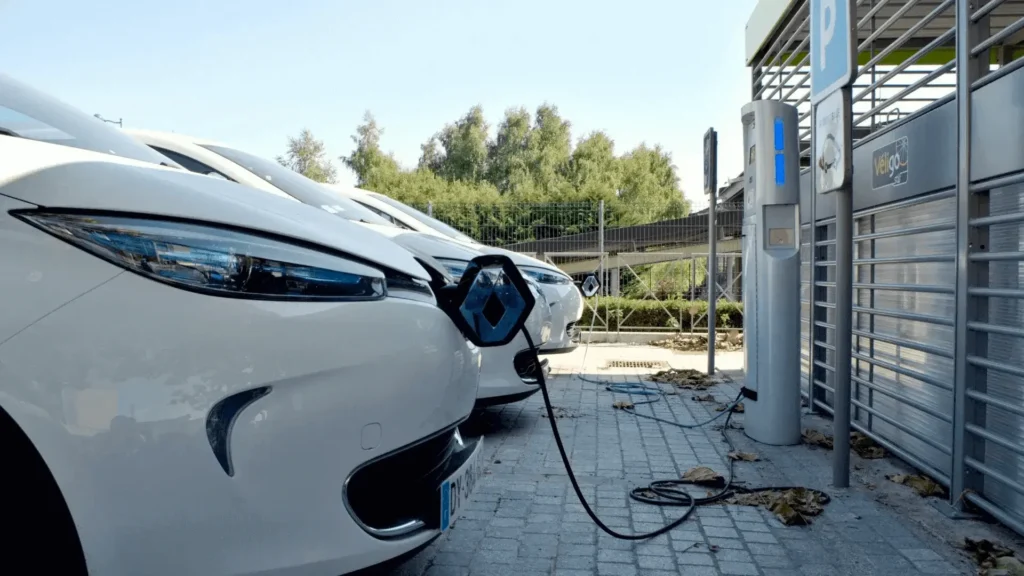
The optimization of the integration of electric vehicle fleets (EV) into unbalanced distribution systems is a major challenge. Charging planning and route optimization are crucial to avoid overloading the electrical network. The development of electromobility significantly impacts the economic balance of networks, whether public or private. In response to these challenges, specific tools are needed to reduce CO2 emissions and energy dependencies. Global approaches and local optimizations help establish solid benchmarks to evaluate fleet management and sizing techniques for EVs.

The integration of electric vehicles (EV) into a distribution network poses many challenges, especially due to the addition of extra and unpredictable loads on an already unbalanced system. This article explores optimization methods to manage this integration, examining aspects of charging planning, the impact on network stability, and the technological tools available to assist in this transition. Coordinated management and the use of probabilistic solutions contribute to improving the efficiency and sustainability of the integration of electric vehicle fleets.
Charging Planning and Route Optimization
Charging planning for electric vehicles is crucial to avoid demand peaks that can unbalance the network. Route optimization involves determining the best routes and charging times to minimize the impact on the electrical system. Management tools, such as those offered by Mobilisights, allow optimizing vehicle routes based on energy needs and network constraints.
Challenges of Electromobility Development for the Network
Initial Insights
Initial insights on the integration of electromobility into the electrical system indicate that it can threaten the stability of the network. The 2017 forecast report by RTE highlighted the associated challenges, notably the need to strengthen existing infrastructures and adopt smart management strategies to contain potential overloads.
Tools for Optimizing Electric Vehicle Consumption
The current ecological and economic context pushes for the reduction of CO2 emissions and reliance on fossil fuels. Various technological tools allow for efficient management of energy consumption by EV fleets. These systems take into account production forecasts and potential errors to adjust charging plans in real-time, thereby improving overall energy efficiency.
Cooperative Management of Electric Vehicle Fleets
The cooperative management of EV fleets involves local and global optimization to establish a solid benchmark for evaluating available techniques. The objective is to coordinate the charging needs of multiple vehicles to minimize the impact on the network while ensuring a stable and balanced supply.
Impact of Electric Vehicle Integration on the Stability of the Electrical Network
The rapid development of EVs can threaten the stability of the electrical network, especially if the integration is not properly managed. The addition of numerous new loads, particularly during fast charging, can create imbalances and lead to service interruptions. Probabilistic integration solutions allow for better anticipation and distribution of loads to maintain stability.
Management and Sizing of Electric Vehicle Fleets
The sizing of EV fleets and their management represent an optimization problem that requires advanced techniques to compensate for forecasting errors in energy production. By transmitting setpoint values in real-time to each charging point, vehicles can adjust their energy consumption, thereby reducing overload risks and optimizing energy distribution.
Innovative Solutions for Route and Charging Optimization
Innovative solutions, such as those developed by Mobilisights, provide new tools to optimize the routes of EV fleets and their charging plans. These technologies enable precise and proactive planning, thus contributing to better integration of EVs into electrical networks while minimizing potential negative impacts.
- Optimization Tools: Charging planning, Route optimization
- Additional Load: Integration of electric vehicles, Electrical distribution system
- Electromobility Challenges: Reducing CO2 emissions, Economic dependencies
- Network Stability: Potential threats, Rapid development of EVs
- Management Tools: Global approaches, Local optimization
- Infrastructure Maintenance: Energy management, Setpoint transmission
- Innovative Solutions: Mobilisights, Route optimization
- Economic Balance: Public actors, Private actors
https://twitter.com/OFII_France/status/1805209259182789012
Articles similaires
Thank you!
We will contact you soon.














